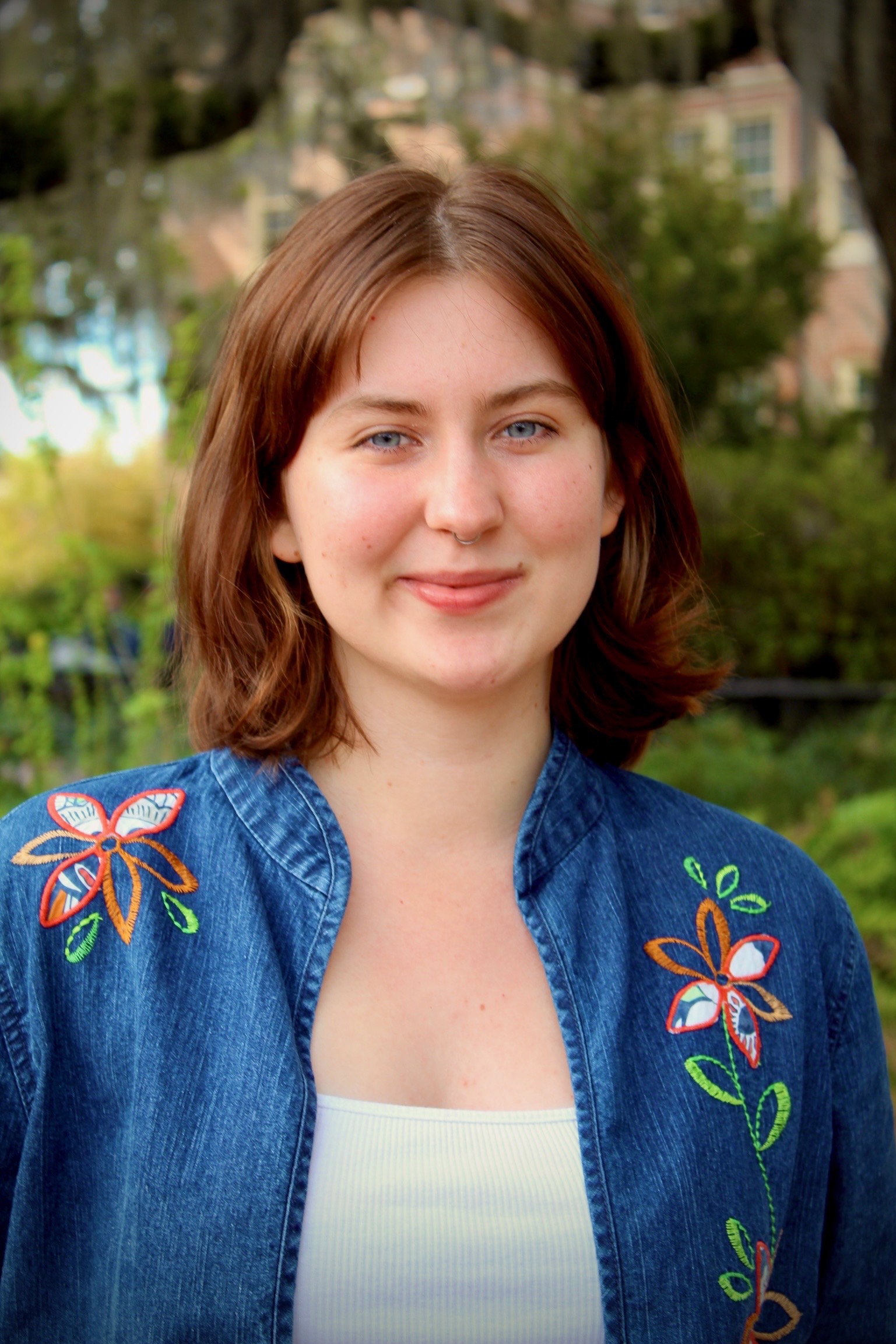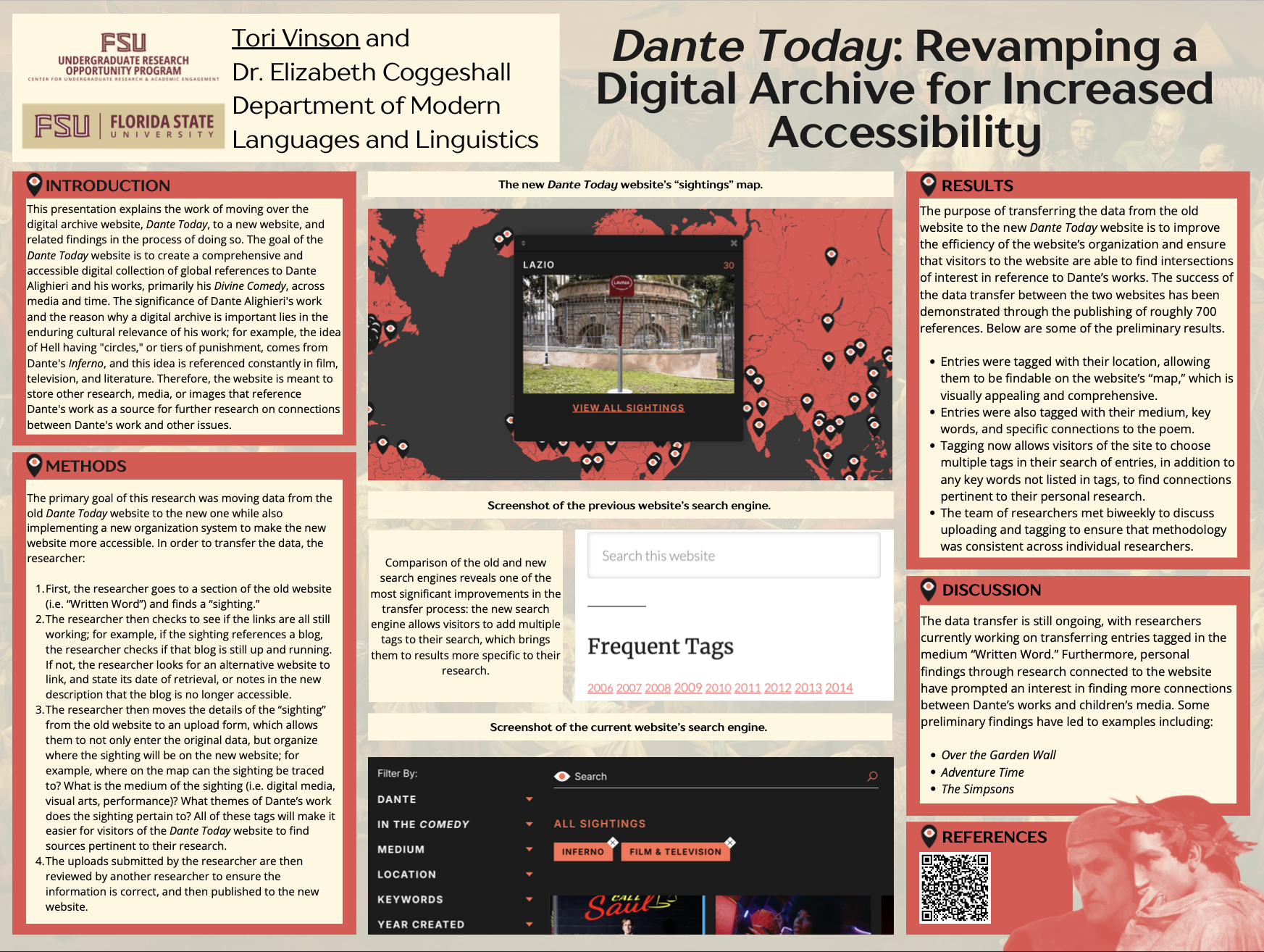Research Symposium
25th annual Undergraduate Research Symposium, April 1, 2025
Tori Vinson Poster Session 1: 9:30 am - 10:30 am/ Poster #264

BIO
Tori Vinson is a second year student at Florida State University studying English literature and humanities, with concentrations in modern languages, history, and film studies. Her interest in Dante studies began in her first semester at Florida State when she took Dr. Coggeshall’s class on the Inferno. She also enjoys studying contemporary media. She is from Pensacola, Florida, and her dad’s involvement in local public history influences her desire to understand the world around her.
"Dante Today": Revamping a Digital Archive for Increased Accessibility
Authors: Tori Vinson, Elizabeth CoggeshallStudent Major: English Literature and Humanities
Mentor: Elizabeth Coggeshall
Mentor's Department: Department of Modern Languages and Linguistics Mentor's College: College of Arts and Sciences Co-Presenters:
Abstract
The goal of the "Dante Today" website, created by Dr. Elizabeth Coggeshall and Dr. Arielle Saiber, is to create a comprehensive and accessible digital archive of global references to Dante Alighieri and his works. These references are called “Dante sightings” and visitors of the site can browse them for both casual research and scholarly aims. Dante Alighieri is a famous Medieval poet, whose most well known work, "La Divina Commedia," or "The Divine Comedy," has been referenced and adapted throughout history. The references that the website holds are very diverse; they include art and literature submitted by their creators, criticism of Dante’s work or works inspired by him, “memes” that reference Dantean ideas in new contexts, and more. Much of the significance of the website’s work comes from not only its accessibility of data, but also its breadth of contributors, as many of the “sightings” are submitted by visitors of the website. The purpose of this particular project was to move the data of the original "Dante Today" website to a new, more efficient website, by going through the individual entries of the original website, checking them for broken links or missing information, and then tagging them with specifics such as key words, medium, and global location to be reorganized on the new site. The results of this effort were thus a new and more organized digital archive that allows the website’s visitors to search for references specific to their interests or research.
Keywords: archive, literature, medieval


